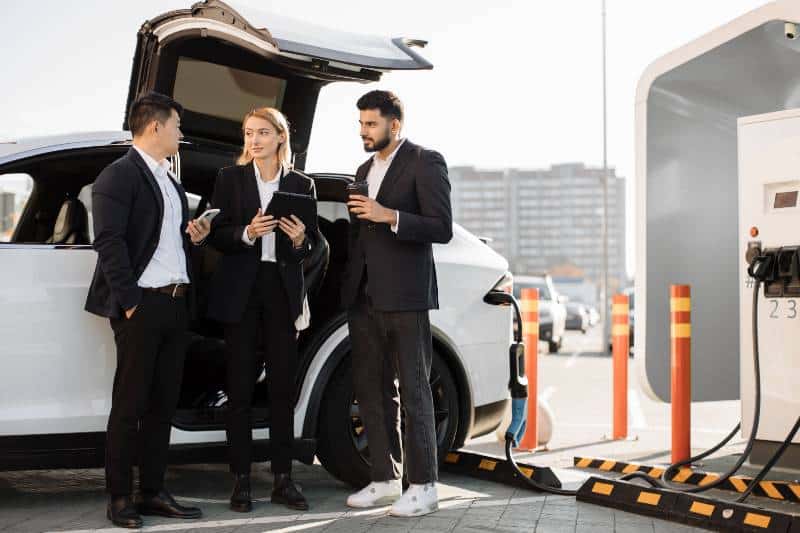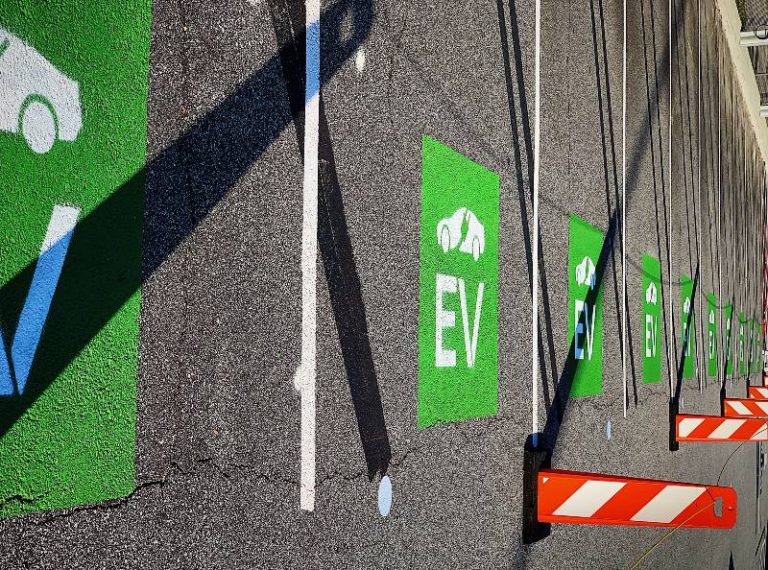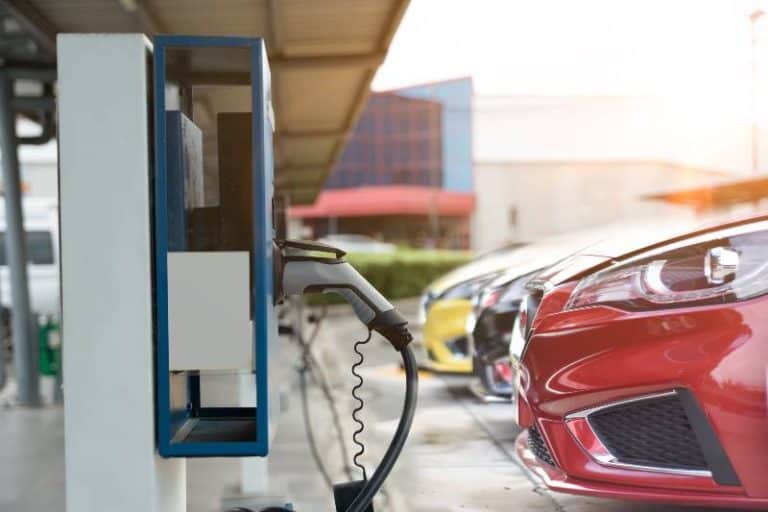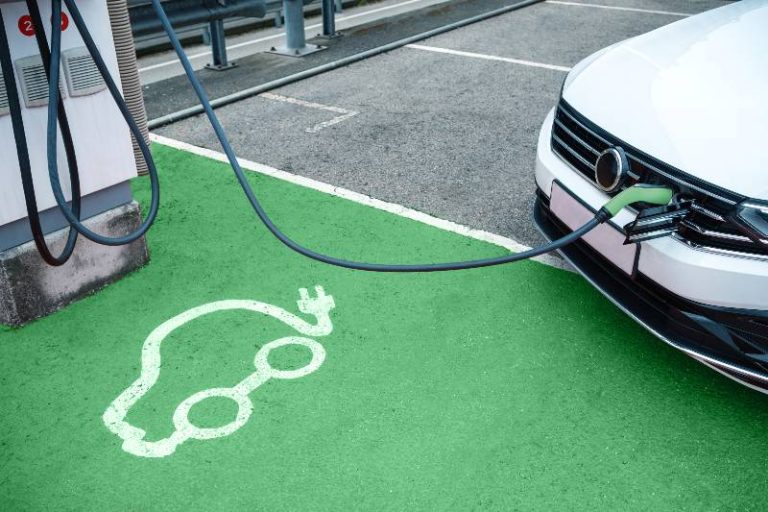The Ethical Roadmap for EV Battery Production
As electric vehicles continue to make their way into mainstream consumer usage, there is an increasing need for government and businesses alike to ensure the ethical sustainability of EV batteries. With technology advancing rapidly and more individuals replacing traditional gas-run cars with EVs powered by renewable energy sources, it’s important that designers and manufacturers are held accountable in terms of production standards, as well as ecological considerations.
In this blog post, we will explore the various ethical implications associated with EV batteries and discuss what needs to be done in order for them to lead to a healthier planet while still meeting customer demand.
According to Ts2, the extraction and transportation of raw materials, along with the energy needed for battery production, can lead to significant greenhouse gas emissions. This raises ethical concerns as the environmental advantages of EVs may be offset by the carbon emissions associated with their battery manufacturing process.
Key Takeaways
- The production of EV batteries involves materials like lithium, cobalt, and nickel, which come with significant environmental and social implications when mined.
- There are serious concerns regarding labor practices, including child labor, exploitation, and unsafe working conditions in regions that source battery materials.
- Consumers play a pivotal role in driving change. By making informed choices and supporting ethical production, they can influence manufacturers to adopt sustainable and responsible practices.
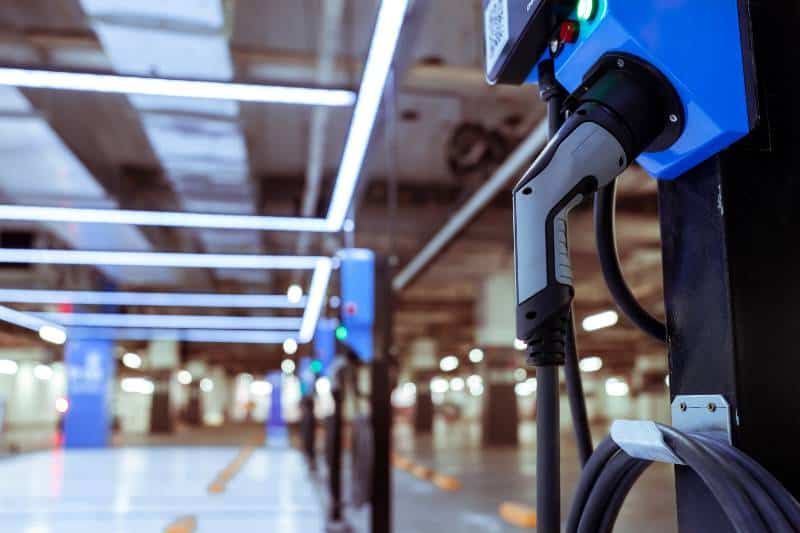
The Raw Materials and Their Sources
Electric vehicle (EV) batteries represent a significant advancement in automobile technology due to their potential for emission reductions and their contributions towards mitigating the impacts of climate change. However, they are also the subject of ethical concerns, specifically regarding their production process. The raw materials used in these batteries – primarily Lithium, Cobalt, and Nickel – are not without their controversies, related to their sourcing methodologies and socio-environmental impacts.
Primary Materials in Electric Vehicle Batteries
Lithium
Lithium-ion batteries are the most commonly used batteries in electric vehicles today. Lithium is a crucial ingredient in these batteries due to its light weight and high electrochemical potential.
Cobalt
Cobalt is another significant raw material in lithium-ion batteries. It stabilizes the battery structure and prevents overheating, thus playing a vital role in the safety and integrity of EV batteries.
Nickel
Nickel is used in EV batteries to improve energy density and extend battery life. This metal also helps reduce the amount of cobalt needed, which can mitigate some ethical sourcing issues as Cobalt is often procured from conflict regions.
Sourcing of Raw Materials
The sourcing of these key raw materials for EV batteries often comes from regions rife with conflict, economic instability, exploitative labour practices, and fragile ecosystems.
Most of the world’s lithium comes from Australia, Chile, and Argentina. On the other hand, cobalt is primarily sourced from the Democratic Republic of Congo, a region synonymous with political instability, human rights abuses, and child labor. The Dominican Republic, Russia, and Australia are among the leading producers of Nickel.
Socio-Environmental Impact of Mining
The extraction of these raw materials for EV batteries has significant socio-environmental impacts, which form the crux of the ethical concerns surrounding their production.
Mining activities, especially in countries with inadequate regulations, often lead to habitat destruction, water pollution, soil erosion, and biodiversity loss. This represents a considerable threat to local ecosystems and the livelihoods of local communities who depend on these ecosystems.
Similarly, the implications for human rights are severe. Human rights abuses, including child labor, unsafe working conditions, low wages, and violation of indigenous rights, are ubiquitous in regions where cobalt is mined.
The ethical considerations of EV batteries hence lie in the balancing act between the undeniable environmental advantages they provide and the social and environmental costs of their production. Thus, industry-wide efforts are needed to source raw materials more responsibly, including better supply chain transparency, enforcing stringent labor standards, investing in alternative battery technologies, and redesigning products for a circular economy.
Labor and Human Rights Concerns
Electric Vehicle (EV) batteries have brought about a revolution in the automobile industry and hold promise for a more sustainable future. However, the production of these batteries raises several ethical issues that cannot be overlooked. Among these concerns are significant questions about child labour and exploitation, working conditions, safety concerns, fair wages, and community benefits in the mining regions.
Child Labor and Exploitation in Mining Regions
A significant portion of the world’s supply of cobalt, an ev battery components essential in the manufacturing of lithium-ion EV batteries, comes from the Democratic Republic of Congo (DRC). The DRC has been frequently criticized for their mining practices, particularly involving child labor. It is estimated that tens of thousands of children may be involved in the hazardous task of cobalt mining. These children are often exploited due to the lack of enforcing safety standards and labor laws.
labour
The working conditions in the mines from which raw materials for EV batteries are sourced are often dangerous. Miners typically work without adequate protective equipment, increasing their risk of injuries from falls, rockfalls, and the usage of tools. Furthermore, they are exposed to harmful dust and chemicals, leading to severe health issues such as chronic respiratory problems and dermatitis.
The rudimentary and informal nature of these mines, in particular, can lead to fatal accidents, with landslides and tunnel collapses not uncommon. The absence of stringent safety regulations and inspections to uphold these regulations exacerbate these issues.
Fair Wages and Community Benefits
The ethical considerations for EV batteries also extend to wage concerns. Workers in these mining areas are often paid inadequately and exploited by intermediaries and large companies. This occurs despite their involvement in an increasingly profitable industry.
The communities often see little to no economic benefit from the extraction of these lucrative resources – a situation known as the resource curse. Instead of local economic development and improved living conditions, the communities surrounding mining areas are all too often plagued with environmental degradation and social problems, without enjoying benefits from the resource extraction happening in their backyards.
Environmental Impact
Electric Vehicle (EV) batteries mark an integral step towards a sustainable and low-carbon future. However, it is essential to consider the environmental and ethical implications throughout their lifecycle, particularly during the production phase. The extraction and processing of raw materials for EV batteries can have significant impacts on land, water, and the overall carbon footprint of the battery production process.
One of the major ethical conundrums arises from the environmental impact of mining for raw materials like lithium, cobalt, and nickel found in batteries used in EVs.
Land Degradation and Deforestation
Mining activities, especially those that are unregulated or poorly regulated, can lead to substantial damage to the land. It causes deforestation when forest areas are cleared for mining operations. This loss of forest cover can lead to a decline in biodiversity, disrupted ecosystems, and increased carbon dioxide levels in the atmosphere.
Deforestation can also cause soil erosion and degradation, as the removal of vegetation exposes the soil. Mining further disturbs the land, creating vast pits or undermining areas in underground mining. This physical disruption can have long-term impacts on the land’s productivity and the local ecosystems, making it a significant environmental concern.
Water Pollution and Usage
The process of mining essential minerals for battery production also poses a threat to water resources. During extraction, harmful toxins can leach into the ground and surface water bodies, causing water pollution. Some of these pollutants, like heavy metals, can have damaging impacts on the health of local communities and ecosystems.
Furthermore, mining processes and refining of minerals are water-intensive, which can lead to water scarcity issues in dry regions. For instance, lithium extraction, in particular, is water-intensive, and its extraction in arid regions like parts of Chile has been linked to local water shortages.
Carbon Footprint of Battery Production
The production of EV batteries is energy-intensive and, depending on the energy sources used, can contribute significantly to greenhouse gas emissions. For instance, if the energy used in the battery production process is primarily fossil fuel-based, then the carbon footprint could be substantial.
The carbon footprint includes not only the emissions from mining but also those from the refining and manufacturing processes. Thus, the location of battery production could have a major influence on the total emissions. For instance, battery production in a country with a coal-intensive energy mix would generate much higher emissions than in a country with a large proportion of renewable energy.
Sustainable and Ethical Alternatives
While Electric Vehicle (EV) batteries on electric cars herald a promising sustainable transport future, they are not devoid of ethical and environmental controversies, particularly concerning their raw material sourcing and production processes. Nonetheless, there are several sustainable and ethical alternatives being pursued to mitigate these concerns, including research and development of alternative materials, ev battery recycling and repurposing used electric car batteries, and ethical sourcing and certification initiatives.
Research and Development of Alternative Materials
The development of alternative materials for EV batteries holds significant potential for addressing ethical issues associated with current battery technologies. Researchers are exploring various pathways such as solid-state batteries, sodium-ion batteries, and other novel chemistries to reduce the dependency on problematic materials like cobalt. If successful and commercially viable, these alternatives can provide the same or better performance with fewer ethical and environmental concerns.
Recycling and Repurposing Used Batteries
Current estimates suggest that most EV batteries have a life expectancy of 10-15 years in vehicular use. After this, they can still retain up to 70% of their charge capacity—quite useful for less demanding energy storage applications. Therefore, a significant effort has been put into developing techniques to recycle and repurpose EV batteries.
Repurposing involves utilizing ‘end-of-life’ batteries in less demanding applications, such as stationary energy storage systems, where performance demands are not as high as they are in vehicles. This allows for the extended use of the battery, delaying the need for recycling or disposal.
At the end of their full lifecycle, batteries can be recycled. This involves recovering valuable metals (like lithium, cobalt, and nickel) from spent batteries and reintroducing them back into the ev battery supply chain. This not only minimizes the demand for virgin materials but also helps tackle the waste management issue associated with spent batteries.
Ethical Sourcing and Certification Initiatives
Various initiatives aim to ethically source ev battery minerals to ensure responsible mining practices. These efforts focus on the establishment of traceability across the supply chain, ensuring that materials used in battery production do not support conflict, child labor, or environmental degradation.
One such initiative is the Responsible Minerals Initiative (RMI), which provides companies with tools and resources to make sourcing decisions that improve regulatory compliance and support responsible sourcing of minerals.
Similarly, certifications like the Fairtrade label have been established for gold and could also be extended to battery minerals like cobalt. These certifications assure consumers that the product they buy does not contribute to social and environmental harm in producing countries.
The Role of Consumers and Manufacturers
Consumer actions and choices can significantly influence practices within the EV battery industry. Informed consumers increasingly demand transparency in the products they buy and use, leading to a direct impact on manufacturers’ practices. By opting for vehicles from manufacturers who ensure ethical sourcing and production processes, consumers can indirectly promote these practices on a larger scale.
The rise of ‘green consumers’ has led to an increased inclination towards products with reduced environmental footprints. As a result, brands are incentivized to provide eco-friendly and ethically sound alternatives to conventional options. This, in turn, can push the entire industry towards a more transparent and sustainable trajectory.
Manufacturer Responsibility
Manufacturers play a pivotal role in ensuring their EV batteries are produced in ethically sustainable ways. This responsibility spans the entire lifecycle of the battery, from material sourcing to end-of-life management.
Key areas of focus should include:
- Ethical Sourcing: Ensuring that the raw materials used in the production of their batteries are sourced ethically and responsibly, countering issues such as child labor, hazardous working conditions, and environmentally damaging mining practices.
- Clean Production Methods: Adopting and investing in clean, efficient production methods in order to minimize environmental impact and reduce the carbon footprint of battery production.
- Recycling Policies: Responsible end-of-life handling of EV batteries, including policies promoting the repurposing and recycling of spent batteries.
In order to authenticate their ethical strategies, manufacturers can undergo independent checks and audits performed by ethical certification schemes.
Collaboration between Stakeholders
Collaboration amongst stakeholders–manufacturers, suppliers, governments, and non-profit organizations–is fundamental in addressing the ethical considerations tied to EV batteries. Cooperative initiatives can yield standards, policies, and practices beneficial to all parties involved, including exploitable workforces and vulnerable ecosystems.
Manufacturers and suppliers can collaborate by sharing technological advancements to improve production efficiency and reduce environmental impact. Governments can institute favorable policies that encourage the adoption of sustainably manufactured EVs while discouraging ethically questionable mining practices. Lastly, non-profits can act as observers and independent verifiers of these efforts, providing the transparency consumers require.
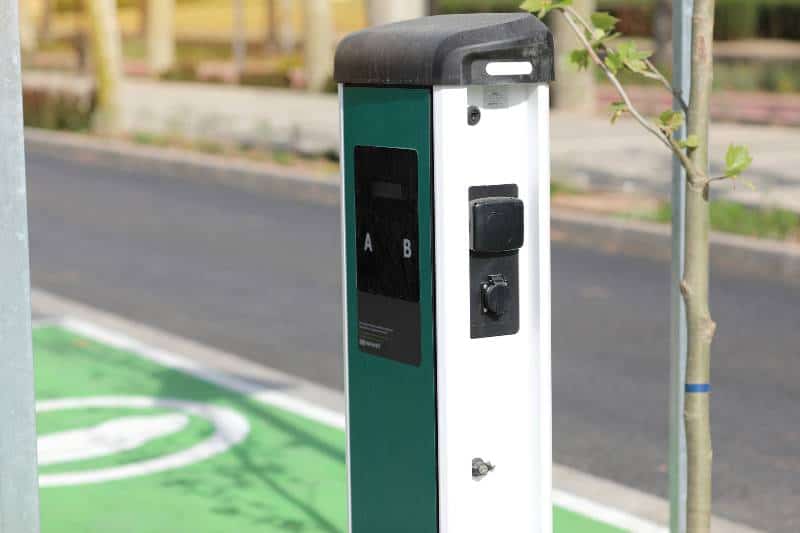
Ethical Considerations EV Batteries FAQs
What are the working conditions like in mines that source battery materials?
The working conditions in many mines that source battery materials are often unethical and unsafe, with reports of child labor, hazardous work environments, and exploitation of workers. This is a major concern, especially in regions where the demand for these materials is high and regulations are weak. Efforts are being made to improve working conditions and promote responsible mining practices through initiatives such as the Responsible Minerals Initiative (RMI).
How can consumers ensure they’re supporting ethical battery production?
Consumers can support ethical battery production by doing their research and choosing to purchase from manufacturers who prioritize ethical sourcing and production methods. This can include looking for certifications or labels that guarantee responsible practices, such as the RMI or Fairtrade label. Additionally, consumers can also advocate for stronger regulations and policies that promote sustainable and ethical production of batteries.
Are there any sustainable alternatives to current battery materials?
Yes, there are ongoing efforts to find sustainable alternatives to current battery materials. Some potential options include using recycled materials, implementing closed-loop recycling systems, and exploring new battery chemistries that rely on abundant and non-controversial elements. However, these alternatives may still be in the early stages of development and require further research and investment before being adopted on a larger scale.
How do manufacturers address ethical concerns in battery production?
Manufacturers can address ethical concerns in battery production by implementing responsible sourcing policies, investing in clean production methods, and establishing recycling and end-of-life management protocols. They can also undergo independent audits and certifications to verify their efforts towards ethical production. Collaborating with other stakeholders, such as suppliers and non-profit organizations, can also help address these concerns effectively.
What is the carbon footprint of EV battery production?
The carbon footprint of EV battery production can vary depending on various factors such as the production methods, materials used, and energy sources. However, efforts are being made to reduce this impact by implementing cleaner production methods and using renewable energy sources. The overall environmental benefits of an electric car over traditional gasoline cars make them a more sustainable choice in the long run.
Conclusion
To ensure a greener and more ethical future for EV battery production, we must now act. Once we can understand the risks to communities and environments that come with mining the necessary materials, we can start to find answers. As consumers, it is our power and responsibility to drive progress in this area- by researching the sources of our products, buying responsibly, and supporting producers who put people and planet first.
Let us join together to create a more sustainable society through good practices at all stages of production! Together we have the power to influence manufacturers for greater social justice, environmental conscience, and human rights in global markets.
So let’s do our part: sign up for Electrik Living’s newsletter today to learn about industry trends, exciting new developments in EV technologies, and how you can make easy sustainable choices for both yourself and Mother Nature!
